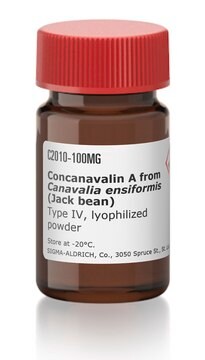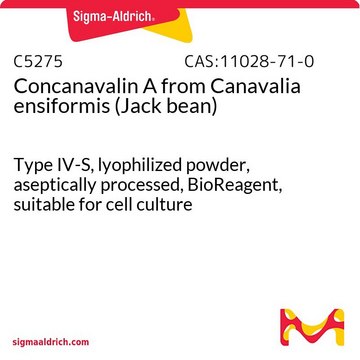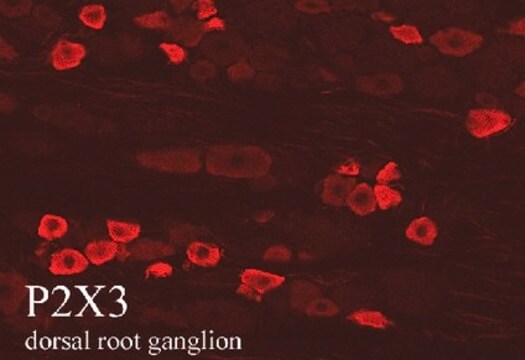E9033
pFLAG-Myc-CMV™-22 Expression Vector
Shuttle vector for transient or stable intracellular expression of dual tagged N-terminal FLAG and C-terminal c-myc fusion proteins
Autenticatiper visualizzare i prezzi riservati alla tua organizzazione & contrattuali
About This Item
Codice UNSPSC:
12352200
Prodotti consigliati
Tag
FLAG® tagged
c-Myc tagged (C-terminal)
Grado
for molecular biology
Stato
buffered aqueous solution
Condizioni di spedizione
dry ice
Temperatura di conservazione
−20°C
Descrizione generale
The pFLAG-Myc-CMV™-22 Expression Vector is a 6.3 kb derivative of pCMV5 used to establish transient or stable intracellular expression of dual-tagged N-terminal FLAG® and C-terminal c-myc fusion proteins in mammalian cells. The vector encodes the FLAG epitope (Asp-Tyr-Lys-Xaa-Xaa-Asp) and a c-myc epitope (EQKLISEEDL) upstream and downstream of the multiple cloning sites, respectively.
pFLAG-Myc-CMV-22 Expression Vector is a shuttle vector for E. coli and mammalian cells. Efficiency of replication is optimal when using an SV40 T antigen expressing host.
The pFLAG-CMV-4-BAP Control Plasmid is a 7.7 kb derivative of pCMV5 used for transient intracellular expression of N-terminal Met-FLAG bacterial alkaline phosphatase fusion protein in mammalian cells.
Vector Maps and Sequences
pFLAG-Myc-CMV-22 Expression Vector is a shuttle vector for E. coli and mammalian cells. Efficiency of replication is optimal when using an SV40 T antigen expressing host.
The pFLAG-CMV-4-BAP Control Plasmid is a 7.7 kb derivative of pCMV5 used for transient intracellular expression of N-terminal Met-FLAG bacterial alkaline phosphatase fusion protein in mammalian cells.
Vector Maps and Sequences
Applicazioni
The pFLAG-Myc-CMV™-20 Expression Vector is suitable for stable cytoplasmic expression of C-terminal c-myc N-terminal Met-FLAG® fusion proteins in mammalian cells.
Componenti
pFLAG-Myc-CMV™-22 Expression Vector 20 μg (E5901) is supplied as 0.5 mg/ml in 10 mM Tris-HCl (pH 8.0) with 1 mM EDTA.
pFLAG-CMV™-4-BAP Control Plasmid 20 μg (C4722) is supplied as 0.5 mg/ml in 10 mM Tris-HCl (pH 8.0) with 1 mM EDTA.
pFLAG-CMV™-4-BAP Control Plasmid 20 μg (C4722) is supplied as 0.5 mg/ml in 10 mM Tris-HCl (pH 8.0) with 1 mM EDTA.
Principio
The promoter-regulatory region of the human cytomegalovirus drives transcription of FLAG® and c-myc fusion constructs. The aminoglycoside phosphotransferase II gene (Neo-r) confers resistance to aminoglycosides such as G418 allowing for selection of stable transfectants.
Note legali
FLAG is a registered trademark of Merck KGaA, Darmstadt, Germany
pFLAG-CMV is a trademark of Sigma-Aldrich Co. LLC
pFLAG-Myc-CMV is a trademark of Sigma-Aldrich Co. LLC
Prodotti correlati
Codice della classe di stoccaggio
10 - Combustible liquids
Scegli una delle versioni più recenti:
Certificati d'analisi (COA)
Lot/Batch Number
Ci dispiace, ma al momento non ci sono COA disponibili online per questo prodotto.
Se ti serve aiuto, non esitare a contattarci Servizio Clienti
Possiedi già questo prodotto?
I documenti relativi ai prodotti acquistati recentemente sono disponibili nell’Archivio dei documenti.
Shinsuke Izumaru et al.
International journal of oncology, 24(5), 1245-1255 (2004-04-07)
DNA damage via radiation exposure and administration of chemotherapeutic agents induce apoptosis, which is a basic mechanism for non-surgical anti-cancer treatment. We analyzed ionizing radiation (IR)- or ultraviolet (UV)-induced apoptosis in human laryngeal carcinoma (HEp-2) and uterine cervical carcinoma (HeLa)
Maria Filippova et al.
Journal of virology, 83(1), 210-227 (2008-10-10)
High-risk strains of human papillomavirus (HPV) such as HPV type 16 (HPV16) and HPV18 are causative agents of most human cervical carcinomas. E6, one of the oncogenes encoded by HPV16, possesses a number of biological and transforming functions. We have
Maria Filippova et al.
Journal of virology, 81(8), 4116-4129 (2007-02-03)
Human papillomavirus type 16 (HPV-16) has developed numerous ways to modulate host-initiated immune mechanisms. The HPV-16 E6 oncoprotein, for example, can modulate the cellular level, and consequently the activity, of procaspase 8, thus modifying the cellular response to cytokines of
Erin L Whitaker et al.
Cytokine, 56(2), 272-281 (2011-08-17)
Interleukin-24 (mda-7/IL-24) is a cytokine in the IL-10 family that has received a great deal of attention for its properties as a tumor suppressor and as a potential treatment for cancer. In this study, we have identified and characterized five
Il team dei nostri ricercatori vanta grande esperienza in tutte le aree della ricerca quali Life Science, scienza dei materiali, sintesi chimica, cromatografia, discipline analitiche, ecc..
Contatta l'Assistenza Tecnica.







